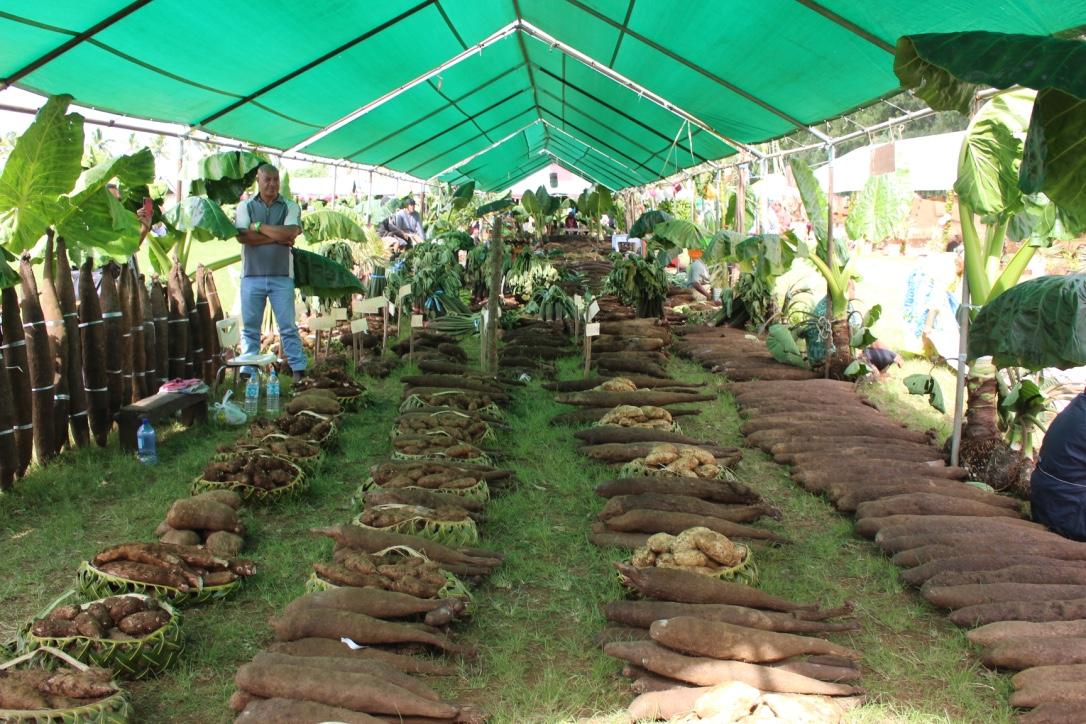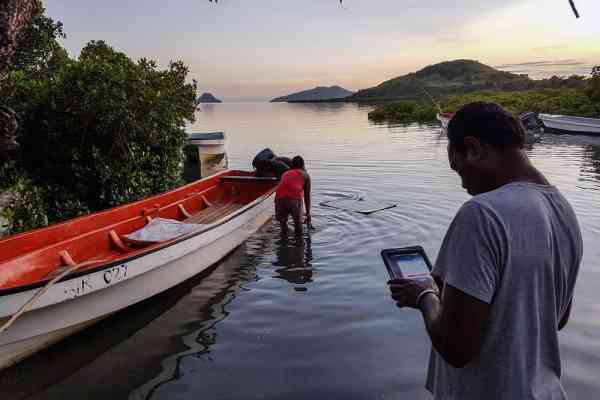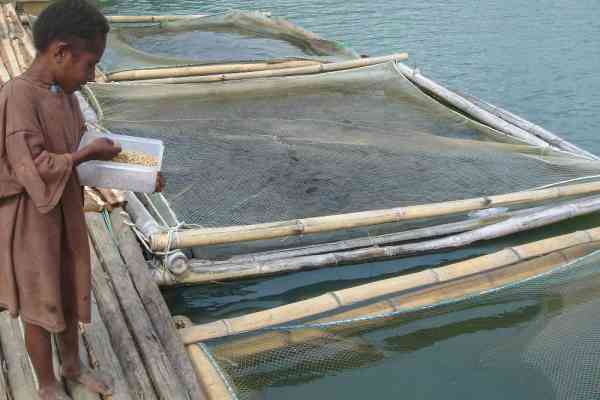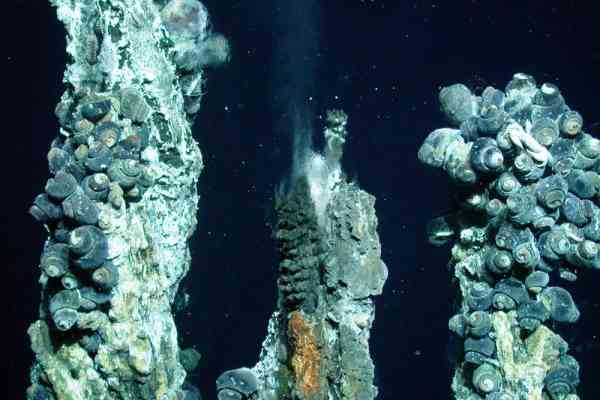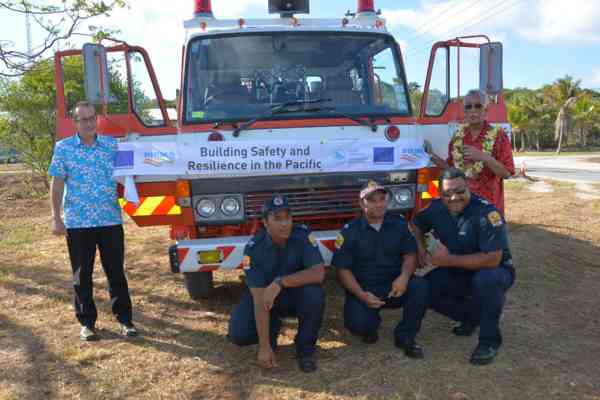Photo credit: MAFFF Tonga - mafff.gov.to
Drought has become a normal way of life for the people of Tonga. Rising sea-levels and increased salinisation have reduced the suitability of its agricultural land, while natural disasters have severely affected crop production and food security.
Climate change means that Tongans must adapt their farming techniques to cope with less water for growing crops and trees and raising livestock. Communities are working actively with the Tongan Government, Pacific Community (SPC) and United States Agency for International Development (USAID) to find ways to become more resilient.
“Before, we could come in and clean up the land under trees … but these days, no”, said Kolonga resident Soane Hamala. “It’s very dry. It’s very hard to grow. You have to plough the land before you plant something.”
In preparation for dry season, Soane plants giant taro. “We have to plant something that can survive longer when it is dry”, Mr Hamala said.
With people relying on imported food, even in rural areas, improving food security is vital, explained SPC Crop Production and Extension Coordinator, Siosiua Halavatau. “As a strategy for that, we are trying to improve their production of domestic animals”, Dr Halavatau said. “In some places where the soil is a bit rundown, we are also introducing cover crops that will improve soil fertility.”
Climate-friendly crop varieties are available for farmers, and free vegetable seedlings are distributed to families for use in their home gardens. In Tongatapu, Eua and Vava’u, groups have established community nurseries, agroforestry projects, and facilities for chickens and pigs so that households can increase and diversify food production systems.
“We look at ways we can assist the people, particularly the vulnerable ones”, said
Ministry of Agriculture & Food, Forests and Fisheries (MAFF) Chief Executive Officer for Agriculture, Forestry & Food, Losaline Ma’asi. “This approach is very important to the people, particularly the people in this community.”
Responsible animal husbandry has become a priority area in Tonga. “It’s illegal now to have pigs roaming around as they do too much damage to the crops and ruin the environment”, said MAFF USAID Project Coordinator, Fatefehi Moala.
In Houma, the Fangatave Women’s Group holds cooking demonstrations using vegetables grown in their community garden. “It’s quite good to involve women so that we can know and understand how to propagate seeds and the techniques for planting in the fields”, said Fangatave Women’s Group Chair, Anamafi Latukula. “This project helps a lot to supply seedlings for our group and we give the extra from this nursery to others who aren’t in our group”, she said.
For Houma resident, Mele Finau, the benefits of growing her own vegetables are clear. In the past she could not afford to buy both a 2 kg chicken and imported vegetables to provide dinner for her family of eight. “Now I buy a 1 kg chicken and mix it with vegetables and it’s enough for them”, she said.
Highlights:
- Tonga affected by drought and climate change.
- Food security is an issue – in rural areas many people rely on expensive imported food.
- This project supplies climate-friendly seedlings and supports community chicken runs and piggeries.
Video:
